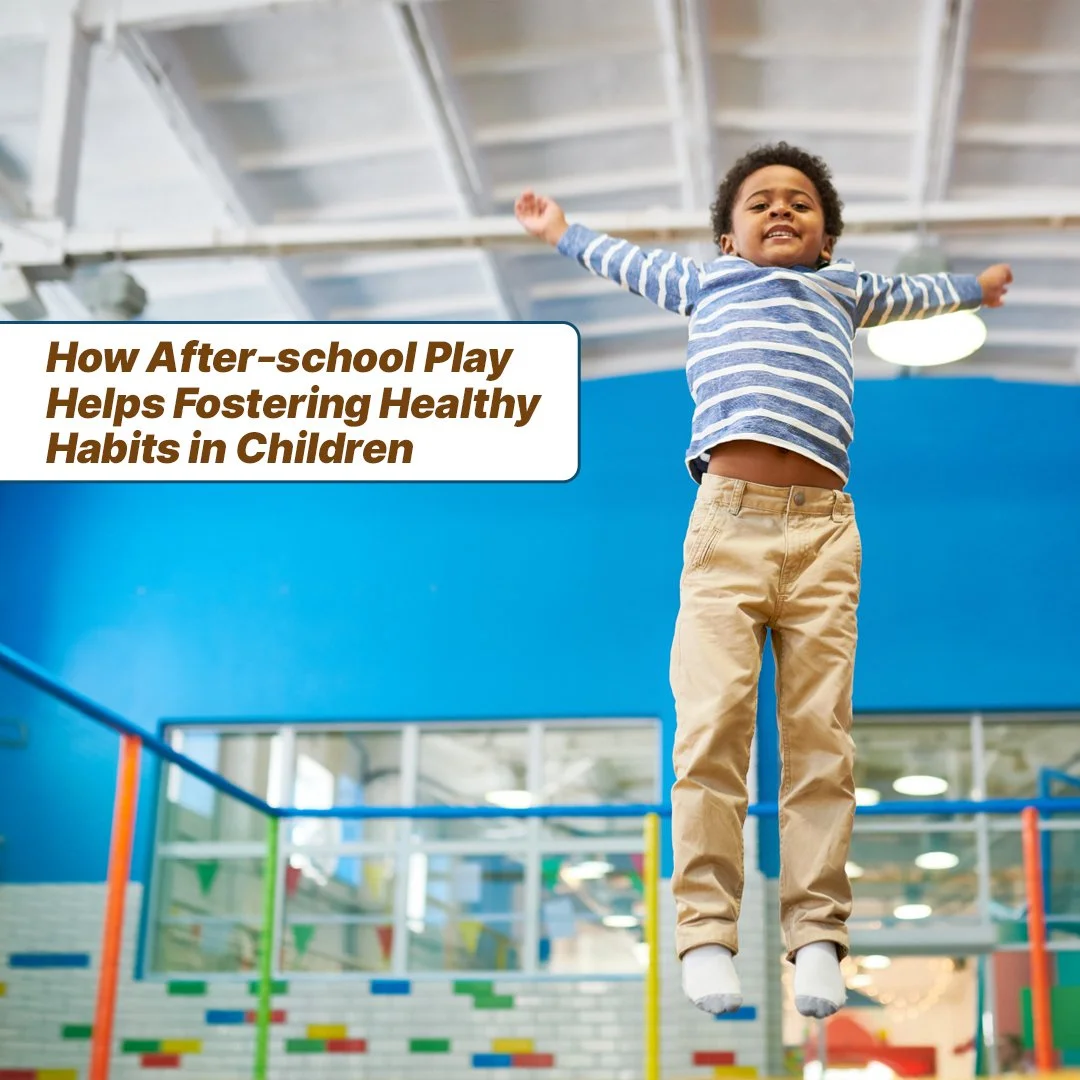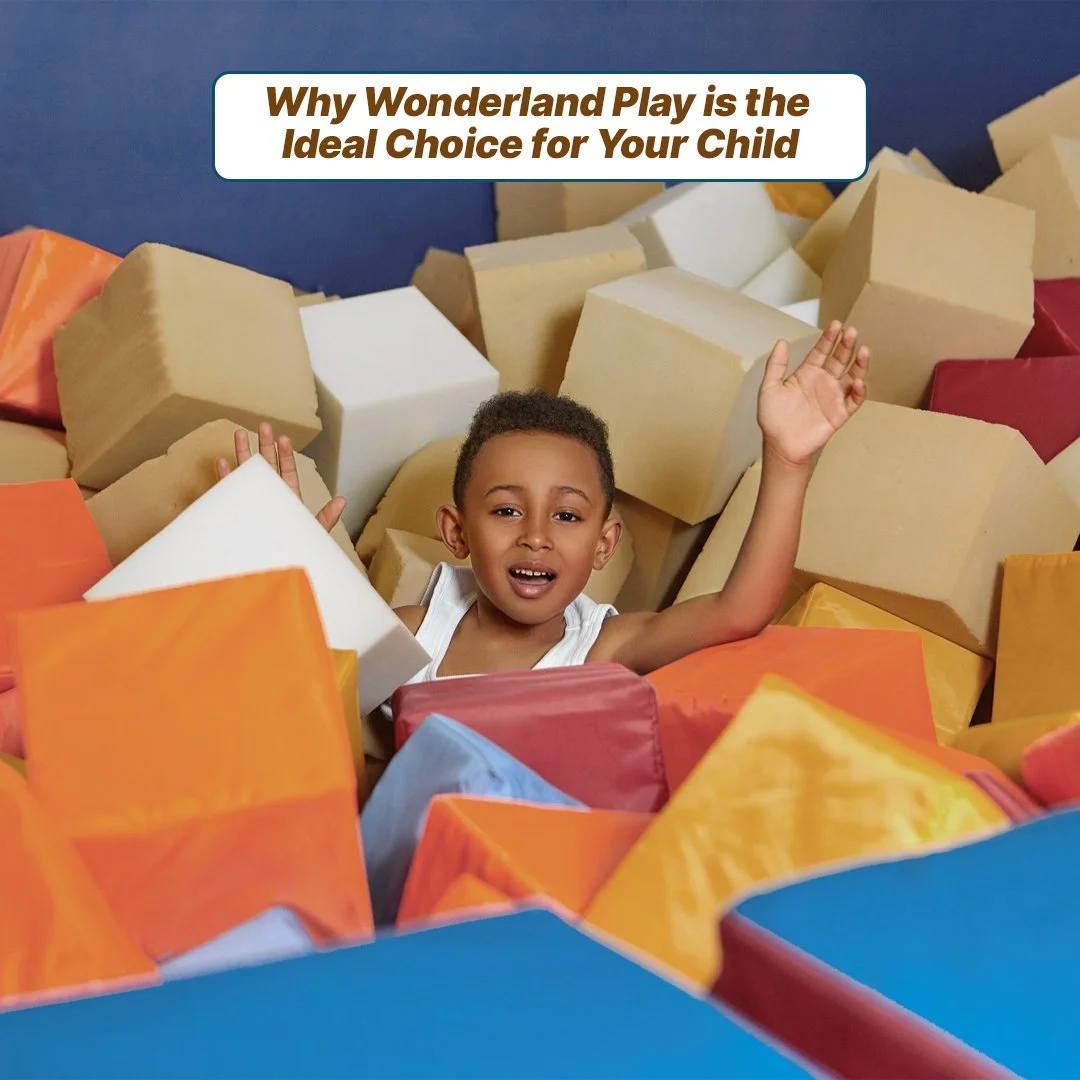How After-school Play Helps Fostering Healthy Habits in Children
Even though the school bell marks the finish of classes, numerous children view it as the beginning of something much more worthwhile: their own time. Between packed timetables and daily homework, childhood is slowly getting packed into structured boxes. But here’s the truth most don’t realize — how an after-school club helps foster healthy habits in children. It’s a growing need for every modern family.
As parents, we often worry about screen time, poor food choices, or social isolation. Yet, the solution might be simpler than expected. After-school play isn't just about bouncing on trampolines or coloring between the lines. It’s a chance for children to unwind, build friendships, and make healthy lifestyle choices without even realizing it.
This blog explores the quiet yet powerful role of after-school play for your child’s wellbeing, and more importantly, how your choices today can set the stage for their stronger, happier tomorrow.
What Does 'After-School Play' Really Mean?
Childhood magic starts when the school bell rings. It creates a space where learning takes a backseat, and development takes the steering wheel. In the UK, after-school play is way more than “keeping children busy.” It’s a mix of structured and unstructured activities designed to promote healthy habits in children to help them grow beyond the classroom.
Types of After-School Play:
Clubs like drama, coding, or gardening let children explore hobbies while building real-world confidence.
Sports sessions boost energy levels and nurture teamwork without feeling like another lesson.
Creative zones spark imagination through painting, music, or dance, helping children express what words sometimes can’t.
Play zones for kids, blend safety with high-energy fun. Younger kids who enjoy movement will appreciate it.
Together, these experiences shape not just skills but habits. And that’s where the transformation begins. Let’s now explore how these habits take root through playful routines.
Building Healthy Habits Through Play
Healthy habits don’t just show up in one morning. They’re planted in everyday routines, especially the playful ones after school. When children engage in fun, movement-rich environments, their bodies, minds, and behaviors naturally flourish.
1. Physical Health That Feels Like Fun
Running, climbing, and jumping are not just plays, it’s fitness in disguise. Frequent indoor activities for kids enhance flexibility, balance, and heart health. Children who engage in just 60 minutes of physical activity daily are less likely to struggle with weight-related issues later in life.
2. A Calm Mind and a Confident Heart
Play reduces anxiety and improves focus. Studies show children involved in after-school programs are less likely to experience emotional stress. Whether it’s painting quietly or bouncing with friends, these moments help regulate emotions and ease school-day tension.
3. Stronger Bonds, Smarter Choices
Group play builds patience, teamwork, and problem-solving skills. It teaches children how to share, lead, and listen. This trait shapes responsible adults. Over time, this leads to better classroom behavior and sharper decision-making.
4. Results That Last
Children involved in consistent after-school play score higher academically and report better self-esteem. And when confidence kicks in early, it echoes through every stage of life.
Let’s now uncover the exciting activities that make all this possible — and why they matter more than ever today.
Exploring After-School Activity Options
Not all play is created equal and that’s the beauty of it. After-school time opens the door to a world of creative, physical, and brain-boosting experiences that keep your child moving, thinking, and growing, long after the classrooms.
1. Obstacle Courses
These energy-packed setups aren’t just fun, they’re genius. Obstacle courses improve balance, speed, and strength while teaching resilience. As children climb, crawl, and conquer, they learn to trust their bodies and push past fear all while having a blast.
2. Arts and Crafts
The age-old formula of paint, paper, glue, and creativity works quite well. Crafting stimulates creativity, enhances motor abilities, and soothes the psyche. It’s also a great way to help children express thoughts they can’t always put into words.
3. Bouncing on Trampolines
Trampoline play improves coordination, burns off extra energy, and strengthens muscles. And the best part? Children think it’s pure fun, never fitness — which makes them keep coming back.
4. Puzzle Solving
Logic games, brain teasers, and strategy jigsaw puzzles build patience and focus. These activities quietly train children to think critically and work through challenges — skills that carry over into homework and real-life decision-making.
5. Music and Dance
Whether it’s banging drums or twirling to a beat, music and dance encourage emotional expression and build self-esteem. They’re great for shy children, too — movement and melody can speak when words can’t.
What Should Parents Consider?
Before signing up, think about your child’s interests, energy levels, and comfort zones. A shy child might thrive in crafts or puzzles, while an energetic one may need obstacle play or dance to let off steam. The key is to balance fun with personal growth.
Next up, let’s look at why Wonderland play isn’t just another play zone, but a place that ties all of this together with purpose and care.
Why Wonderland Play is the Ideal Choice for Your Child
When you think of an after-school play that is safe, full of fun, learning, and convenience Wonderland Play stands tall. It’s not just a soft play center; it’s a well-thought-out experience built around what children love and what parents need.
A Safe Space Where Children Can Be Children
Wonderland Play isn’t just padded floors and colorful walls. It’s a space built with care from top-notch safety standards to staff who see and engage with every child.
Designed for Every Stage of Childhood
Age-appropriate play zones mean toddlers don’t get lost in the crowd, and older children don’t get bored. Whether your child loves gentle slides or full-on obstacle-style adventure zones, there’s room for everyone to play at their own pace. Plus you can plan your child's birthday party as there is a kids party venue too.
Real Reviews, Real Joy
Parents often say Wonderland “saved their afternoons.” One mum shared, “It’s the only place where I can sip coffee while my daughter learns to climb — win-win!” Children genuinely like the experience and ask to return, not just out of habit.
Value That Makes Sense
With flexible passes, clean facilities, and extras like snack corners and party options, Wonderland offers great value for money. For busy parents juggling work and family, it’s a one-stop solution that fits right into the weekly routine.
And now that you know where all the magic happens, make the best choice for your child’s well-being.
Investing in Your Child’s Future Through Play
As we’ve explored throughout this blog, after-school play goes far beyond just passing the time. It shapes habits, builds confidence, and supports emotional and physical growth in ways that truly matter. From structured activities like sports and arts to exciting soft play adventures, these hours after the school bell rings offer priceless learning wrapped in fun.
We also discovered how options like Wonderland Play bring everything under one roof - safety, stimulation, and smiles making it easier for parents to support their child's development without added stress.
When you prioritize after-school play, you're not just filling a gap in your child's day — you're laying the groundwork for a happier, healthier future. So why wait?
Visit Wonderland Play today and see firsthand how one visit can spark big changes. Let your child bounce, climb, create, and grow — because their best moments often begin after school.
Frequently Asked Question’s
-
Play keeps children physically active, boosts mental wellbeing, and encourages emotional expression in a fun, natural way.
-
It nurtures key life skills like problem-solving, teamwork, and self-regulation while supporting physical, social, and cognitive growth.
-
By embedding habits into playful routines—like group games, obstacle courses, or creative tasks—kids learn without pressure.
-
Playtime unlocks curiosity and confidence, helping children develop resilience, creativity, and a love for learning.
-
In care settings, play supports emotional healing, encourages social interaction, and helps professionals connect with children in a safe, engaging way.





